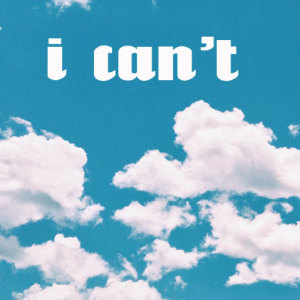You’ve heard the saying Nobody’s perfect?
Until fairly recently, my reply would have been…
It’s because they’re not trying hard enough.
It was only after Brené Brown called me out on my addiction to perfectionism that I started to loosen my grip on my attempts to be perfect. I started to make an effort to be more real about my experiences, because real is vulnerable and relatable, and perfect, well perfect is just plain annoying. And boring.
It was during my ongoing battle to slay perfectionism and be true to myself that I had the following insight. Every stressful situation I’ve found myself in from arguments with my husband to run-in’s with complete strangers has been rooted in the following failed admissions:
I can’t admit when I’m wrong.
If you’ve ever been just plain wrong about something (What me? No way.), whether it’s a silly thing like whether you are or are not out of parmesan cheese, something as black and white as a historical fact, or maybe something more nuanced like a prediction that goes horribly awry, outright admitting you’re wrong can be pure torture.
For some people (ahem), listening to Wind Beneath My Wings on repeat for eternity is a better alternative to simple saying, I got that wrong.
I can’t admit when I don’t know.
Do you have a hard time saying, I don’t know? I do. A huge part of living under the weight of perfectionism is being competent and being liked, well actually loved, all of the time. What better way to appear competent than to know everything? And when you know everything, people will love you for being so smart and having all the answers.
Doesn’t that sound kind of ridiculous? It’s totally ridiculous, but most of our formative years are spent in school having that exact thing hammered into our heads. The right answer gets you a gold star, the wrong one a slap on the knuckles. Then we take that right into the workplace where a right answer gets you a promotion, the wrong one a pink slip.
Having a spotlight shining on your insecurity and weakness is not something that we’re prepared for. Look at me! I have no idea what I’m doing! It makes it hard to admit what we don’t know.
I can’t admit when I’ve made a mistake.
A little bit different than being wrong, a mistake is when you’ve done something wrong. Broken something, lost something, said something, ruined something.
Like when I was in middle school and broke the remote control and tried to glue it back together with Elmer’s glue, because I didn’t want to confess? Bet you can guess how that turned out.
When you make a mistake, there’s a real fear of having to pay the consequences (Remember Chutes & Ladders? Topple that cookie jar and it’s back, back, back to the beginning.). So yeah, I have a hard time admitting when I make a mistake.
Don’t worry. I turned it around.
Since I’ve discovered what I can’t do, I’ve done a little testing. I’ve tried really hard to admit when I’m wrong, when I don’t know, or when I’ve made a mistake.
And my very scientific results have concluded that when I admit my errors none of the following happen:
- The world ends
- I self destruct
- I end up suffering and alone
Isn’t that great news? Especially for all of the perfectionists out there?
It’s this amazing thing – it seems like I am more liked, more connected, more loved, more myself when I am totally honest about my experiences.
I’ve done it and survived. I bet you can too.

SO with you.
Took me years to discover. And when it finally happened, that is when I said ENOUGH, the world become more meaningful. DONE with it all, including false friendships and false fronts. Thinning the herd, few things have brought me more joy in life. Pleasure to meet you.
Great to meet you too Alexandra! Such a fan of your writing – thanks for stopping by my site. I could not agree with you more on thinning the herd in all areas – quality over quantity and meaningful connection have been something I have been paying a lof of attention to lately. And through that process I have also found more joy!